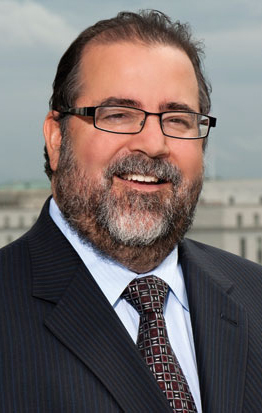Building New Markets, Protecting Those We Have

August 6, 2012
BY Bob Dinneen
The Renewable Fuels Association was pleased to work with the Kansas Corn Commission, East Kansas Agri-Energy and fuel retailer Zarco 66 to open the nation’s first E15 station under the waiver granted by the U.S. EPA on July 10. Make no mistake: this was a historic occasion, as it was the first new fuel blend the nation has seen in more than 30 years.
It was also significant for the choice it offers American drivers. At every pump Scott Zaremba has at his Zarco 66 “Oasis” in Lawrence, Kan., drivers have the option to choose E10, E15, E30 or E85. This blender pump configuration takes the choice away from petroleum companies and puts the decision firmly in the hands of consumers. Since debuting E15, drivers have chosen this new fuel blend between 16 and 26 percent of the time, on average.
With the successful introduction of E15, albeit on a localized scale, we now have concrete data demonstrating the desire of consumers to have more fuel options. We also have data that pours cold water on ethanol critics who have done all they can to scare consumers about E15. The American Petroleum Institute and its Kansas affiliate went so far as to warn consumers against using E15. As the data from day to day usage shows, consumers are more than capable of choosing fuel for themselves without the “advice” of the oil industry.
Advertisement
This industry must remain committed to expanding the market for ethanol because doing so will not come easy. It will require more than press releases and ad campaigns. It will take a concerted and coordinated effort to beat back challenges in Congress, in the courts and in commerce, while pushing forward a positive agenda that responsibly moves the market.
First, the industry must look for ways to address the summer time Reid vapor pressure (RVP) cap for gasoline. This cap of nine pounds per square inch makes offering E15 in most regions a nonstarter. Without the one-pound RVP waiver that is granted to E10, retailers are hard pressed to find affordable gasoline stocks to blend with 15 percent ethanol. We must continue to work with EPA and other regulators to either afford E15 the same waiver or eliminate the waiver for all fuels. In either case, it opens the door for greater E15 use year-round.
Second, we must remain united in the face of headwinds from Capitol Hill aimed at preventing E15 from gaining a foothold in the market. That means working cohesively to address misinformation on the efficacy and safety of E15, while also pushing commonsense legislation that would ease retailer concerns over liability issues related to the partial nature of the waiver EPA granted. Successfully selling E15 in Lawrence will go a long way in dispelling those concerns.
Advertisement
Using scientifically and market-backed data, we must also push back on claims made by the oil industry, which is desperate to prevent ethanol and other biofuels from gaining any more market share than they have today. Hyperbole does not cancel out hyperbole. We must stick to the facts and the science; they are on our side.
Of course, all of this occurs in the shadow of pending litigation, as I write this, and grave concerns about the nation’s corn crop and the renewable fuel standard (RFS). With the courts, there is little we can now do but make sure we take its decision and move forward in a constructive manner. As for the RFS, we can and have been pushing back hard on those calling for a waiver or repeal. The market is working to ration demand. The RFS, with its built-in flexibility, is still working. Continued, but slower, ethanol production, ample ethanol gallons in storage and an excess of 2.5 billion renewable identification numbers (RINs) all provide sufficient opportunity for obligated parties to meet requirements under the RFS.
The industry has made great strides in the three years since the E15 waiver was filed. Manufactured angst, artificial headwinds and unforeseen acts of nature are creating a perfect storm of sorts that threatens the progress we have made. The issues we face—expanding the market, accelerating innovation, defending the RFS—are too important to the nation and to this industry. In the end, we will carry the day.
Author: Bob Dinneen
President and CEO,
Renewable Fuels Association
(202) 289-3835
Upcoming Events





